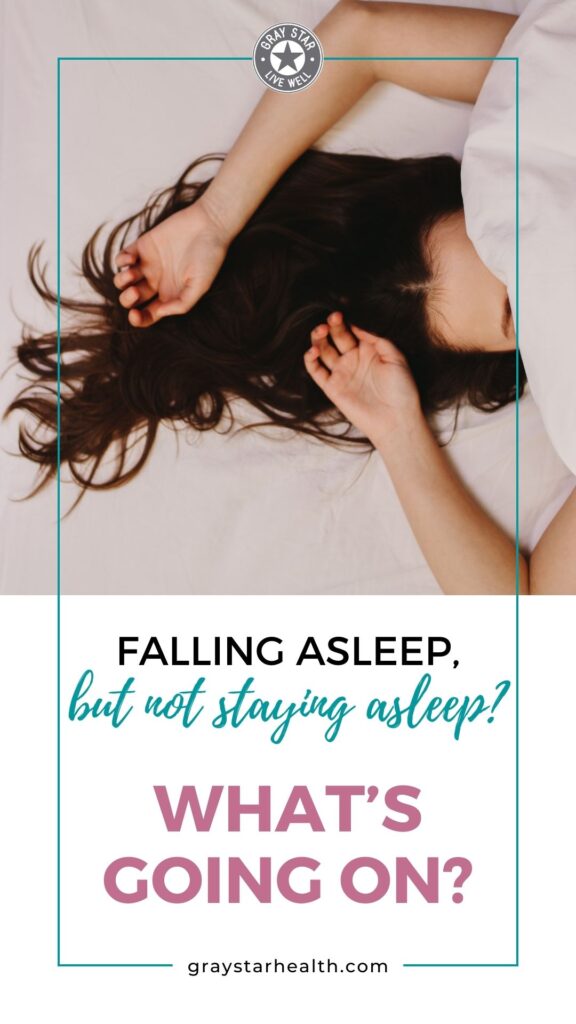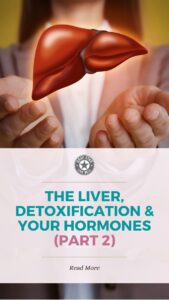When it comes to getting a good night’s sleep, these are a few things that need to be considered in terms of lifestyle habits. Each of these are important to support the body’s natural sleep / wake cycle and critical to achieve restorative sleep at night and vibrant energy throughout the day.
1. Daily physical activity – if you aren’t moving our body during the day, through exercise and intentional movement, your sleep gets affected. Like dogs and kids, you need to move throughout the day in order to sleep at night. Yes, the same rules apply to midlife women! You need to move to get the energy out of our body so you can calm down and sleep at night. If you aren’t sleeping well, staring moving every day!
2. Sunlight exposure – did you realize that getting morning sunlight in your eyes and on your skin helps regulate your circadian rhythm? And being outside (yes another reason to go outside for a walk), or having sunlight come in through the windows during the day supports the natural rhythm of cortisol and melatonin production, helping you have energy in the day and sleep at night. Getting sunlight in the morning, close to the time you wake can be a game changer for sleep.

3. Nighttime routine – our internal clocks are set to follow the sun. When the sunsets, the darkness triggers the release of melatonin. However, modern-day living works against this. The lights in your home, blue light from the TV, computer screens and phones all tell the body that it’s still daytime and to keep cortisol high. When cortisol is high, melatonin can’t be produced. To support your sleep, turn down the lights in the home, especially overhead. Set the temperature a few degrees cooler. Get off the screens for 1-2 hours before bed or use amber blue light blocking glasses to help you. Establish a calming routine to wind down and prepare your hormones for sleep.
4. Bedrooms are for sleep – if you are eating, watching tv or even working in the bedroom, it’s hard to train your body to SLEEP in the same room where this activity is happening. Creating a space where sleeping is the main event. Your bedroom should be calming, a place where your nervous system can relax.

5. Natural remedies for support – even when all of the above are in place, it might be necessary to incorporate other tools to help you relax for a good night’s rest. Some of my favorites include
- Castor Oil Pack
- Magnesium at night
- Serenity Sleep System
What about staying asleep?
For women in midlife, a drop in progesterone can play a big part in disrupting normal sleep patterns. However, it’s not the only piece of the puzzle.
In Chinese medicine, the body has a strict time schedule for regulating specific systems throughout the body. If you are waking during the night, this may provide some insight.

Notice that at 9pm – 11pm, hormones and metabolism are the focus. This relates to the recommendation of why getting to bed by 10pm is great for supporting overall hormone and metabolic health. Not 11:30pm, not 11pm, but closer to 10pm is best!
In terms of waking during the night, I find it interesting that many women report waking between 2-4am and these same women are often experiencing an afternoon slump between 2-4pm, reaching for caffeine, salt or sugar to keep them going.

While there is usually a need to support the lungs, liver and detoxification, I am also thinking about the ADRENALS. Waking at night and having an afternoon slump indicate a nervous system that is stressed out and the adrenals are in serious need of support. Reducing overall stress and supporting adrenal health is something I recommend for every single client I work with.
I often make recommendations specific to each client, but understanding the reality that ALL midlife women can use adrenal support, I love recommending the Adaptiv System from doTERRA. Essential oils are powerful when it comes to shifting the nervous system and promoting more calm in the body and easy to add to your routine.
- Diffuse the The Adaptiv Blend throughout the day. When inhaled, the aroma triggers a response in the brain within the first few minutes.
- Apply the Adaptiv Touch to your pulse points as needed.
- Take the Adaptiv capsules – once in the morning and once in the afternoon. The capsules combine clinically studied botanicals with essential oils to help you manage the effects of stress and anxious feelings.
Sleep is my favorite health practice, so I do everything I can to support it. I take magnesium nightly, along with my progesterone. I dim the lights and wear blue light blocking glasses. I get morning sunlight and get outside daily (even if it’s only a few minutes). I move my body, most days exercise, but somedays, it’s a walk, or even doing house work. I wear a castor oil pack 4-5 nights per week, sometimes more. And I use essential oils throughout the day and before sleep – Adaptiv, Serenity & Balance.
Sleep is critical for maintaining overall health in midlife and beyond. Addressing lifestyle habits, supporting adrenal health, replacing missing progesterone and incorporating supportive strategies can go a long way.
Sweet Dreams









